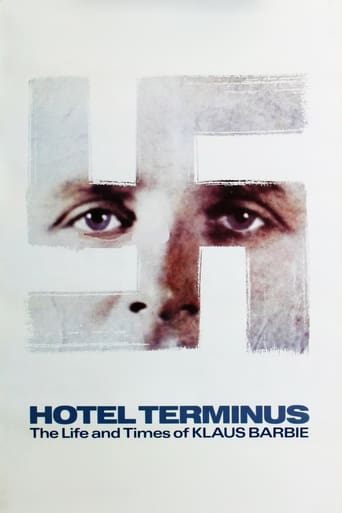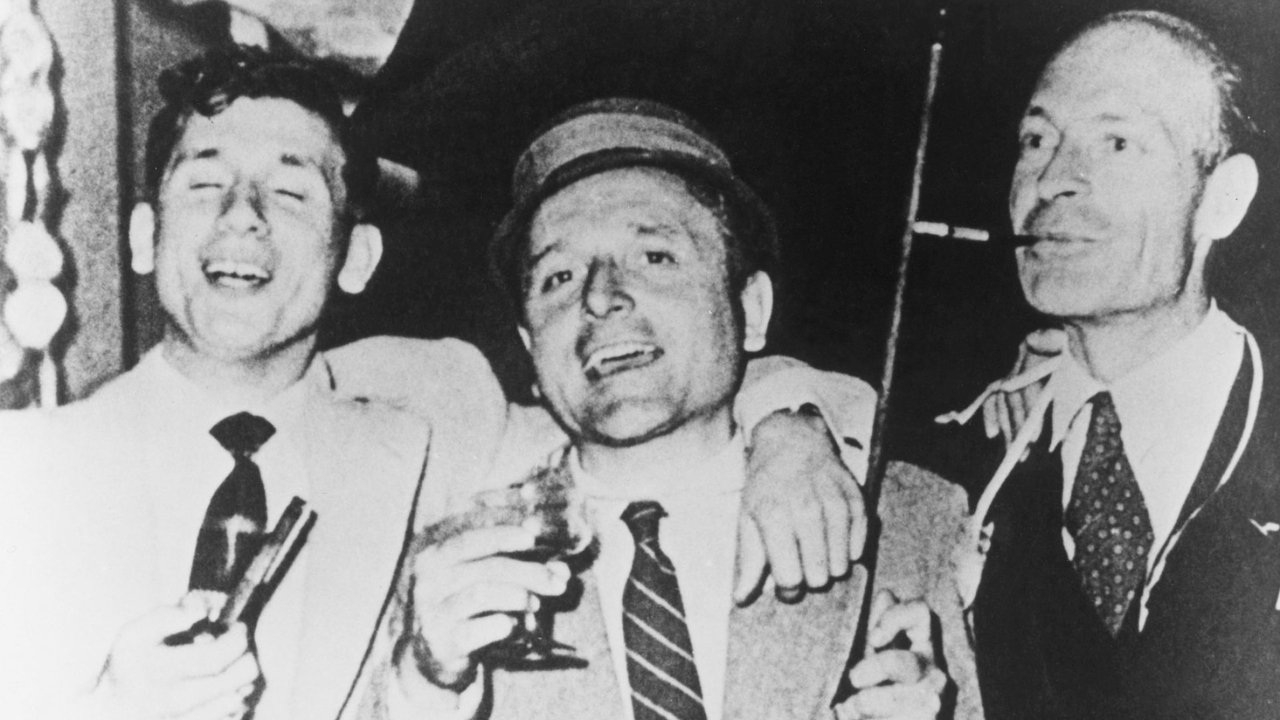MacacoBanditi
This is a French documentary about the sadistic Gestapo commander in Lyon, who captured Jean Moulin, the leader of the French Resistance, during WWII, and tortured and deported a load of other people along the way. Fascinating premise, too bad the result is as exciting as reading a phone-book. Seriously, all you get here is an uninterrupted strain of random people talking in the most monotone and grammatically convoluted way, with no context and no emotion whatsoever. Every single person interviewed, but particularly the director, M. Ophuls, are such boring self-indulgent drags. They seem to enjoy just listening to themselves instead of trying to engage the audience by conveying something other than an exaggerated love for their own mother tongue. Take for instance this question posed to Moulin's former secretary by Ophuls while the camera focuses on himself: "But isn't it incredibly arrogant to try to form an opinion to presume to judge the fragility of the behavior of people who were submitted to torture, or who have... who have, been submitted to torture or, or who have been threatened to be tortured?" Of course in French this takes almost twice the time to spell out. And then it cuts away to him (Ophuls) posing another question to another guy, always in that same overstretched, convoluted and elliptic fashion. The first 30 minutes are spent contrasting the testimonies of different people who disagree as to who was the whistle-blower for Moulin's arrest. But it's so horribly BORING. They might as well be neighbors arguing over who let the garbage bin open for stray dogs to make the sidewalk dirty, when in fact they are discussing matters of life and death. Very, very poor result for such a fascinating premise. I had high expectations for this documentary and was completely disappointed.
JasparLamarCrabb
A devastating, monumental work by Marcel Ophuls. Tracing the life of Klaus Barbie, the infamous "butcher of Lyon," Ophuls dissects the facts that led up to this Nazi's nearly forty years as a free man through interviews with citizens of Lyon, French resistance leaders, politicians, ex-CIC (CIA) operatives as well as with several of Barbie's victims. The film addresses not only Barbie's horrendous war crimes, but questions both French and American collusion during and after WWII (and the onset of the cold war). From France to Washington DC to South America, Ophuls travels the globe peeling back the mysteries of what allowed Barbie to live on for so many years after the war. It's a sad, sometimes horrifying account. Monumental, but NEVER slow. There are appearances by Lucie & Raymond Aubrac as well as famed "Nazi Hunter" Beate Klarsfeld. Ophuls also gets insight from writer Günter Grass, filmmaker Claude Lanzmann, and many, many others. In French, German, English and Spanish.
Michael Neumann
Marcel Ophuls' mammoth four-and-one-half hour-long portrait of Gestapo commandant Klaus Barbie, the notorious Butcher of Lyon, is more than just a biography of another Nazi mass murderer. The film also provides a meticulous study of the forces which allowed him to survive for so long, from wartime anti-Semitism to post-war Communist paranoia to a prevailing what's-done-is-done attitude of retroactive amnesia. Ophuls is not so complacent, and makes no apologies for his sometimes confrontational approach to the subject. In his mind those who don't learn from the past are doomed to repeat it, and the sheer volume of verbal testimony, from enemies and friends alike, is only the director's way of ensuring we neither forgive nor forget. The scope of the film is vast, covering over forty years and spanning several continents, but the scale is intimate: one voice, one detail at a time, making it an exhaustive but hardly exhausting account of one monstrous but admittedly small cog in an evil machine, pieces of which are still well-oiled and operating even today.
turing77
Marcel Ophuls is an obnoxious jackass (think of a European Michael Moore), and he is overly obtrusive in this film, but it is a must-see nonetheless. We all know what Barbie did, but the role of the US government in shielding him from French authorities after the war is not so commonly known. This film leaves no stone unturned, and the bittersweet conclusion--Barbie finally was imprisoned, but only for four years, and after he had already lived free and wealthy for forty years--is sobering.


 AD
AD



